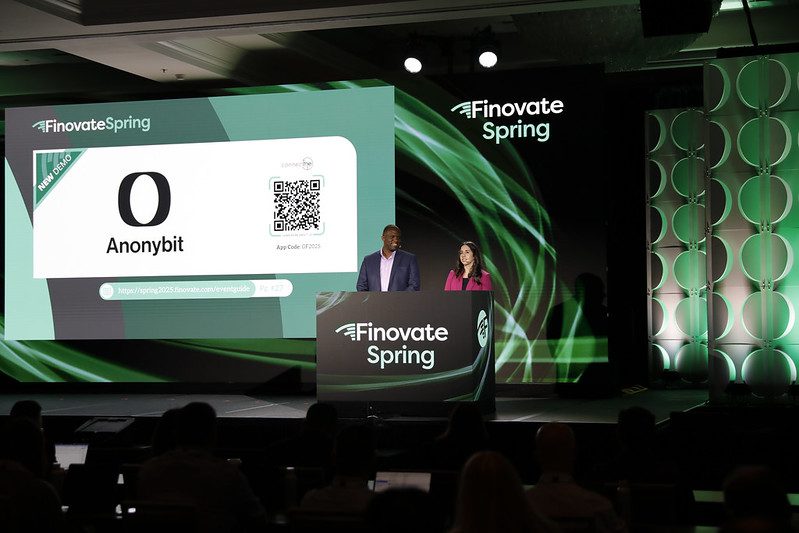
This week’s edition of Finovate Global looks at recent fintech headlines from the South American nation of Peru.
EBANX partners with Peruvian digital wallet Yape
Brazilian payments company EBANX announced a direct integration with Peruvian digital wallet, Yape. Designed for cross-border commerce and relying on an easy user enrollment process, Yape enables users to pay for purchases on international ecommerce websites using either their Yape wallet balance or a linked card. The wallet supports recurring, one-click and on-file payment solutions and, in 2024, was responsible for the largest share of the volume transacted online through a digital wallet in the country. This is according to research from Payments and Commerce Market Intelligence (PCMI).
“With over 14 million active Peruvian users, Yape empowers millions of consumers with reliable daily transactions,” Yape Head of Payments Claudia Silva said. “This direct integration with EBANX marks a significant step in expanding our reach to global merchants, allowing them to tap into the vast potential of the Peruvian market.”

Digital wallets are a major component of Peru’s payment ecosystem. The fourth most commonly used payment in the country, digital wallets represented 10% of all digital commerce transactions in Peru in 2024. PCMI anticipates a digital wallet annual growth rate of 17% by 2027 and much of this growth, according to Silva, can be credited to Yape. According to the firm’s own data, Yape’s digital wallet delivers a 93% approval rate on transactions, an especially valuable achievement as digital wallets are increasingly becoming the preferred payment method for recurring transactions.
“Through its partnership with Yape, EBANX enables merchants to access a seamless, secure, and high-conversion payment solution that drives immediate results for one-time purchases as well as for subscription-based services and recurring payments,” said Juliana Etcheverry, Director of LatAm Country Growth—South Cone at EBANX. “This partnership goes beyond payments; it’s about fostering scalable, long-term growth for merchants in a rapidly evolving market.”
Founded in 2016, Yape is headquartered in Lima, Peru. The company’s payment app has more than 20 million users and more than 2.5 million affiliated businesses. Yape expanded to Bolivia in 2023, reaching two million users (“Yaperos”) a year later.
Paysafe goes live with PagoEfective ewallet in Peru
As if to underscore the rising popularity of digital wallets in Peru, payments platform Paysafe announced that it is expanding its eCash brand, PagoEfectivo, into a digital wallet. As a brand, PagoEfectivo has been a major force in Latin America’s eCash payment ecosystem, supporting the transactions of millions of online consumers. As a digital wallet, the brand will enable users to load funds instantly, make online transactions, receive payouts from participating merchants, transfer funds to others, and more.

“Our recent survey with Peruvian consumers found that 81% would use a digital wallet from PagoEfectivo,” Paysafe Head of Latin America Estaban Sarubbi said. “With that strong sign, we’re launching a solution that meets consumers’ payment needs.” Paysafe CEO Bruce Lowthers added, “Consumers in Peru already trust PagoEfectivo for everything from iGaming and digital goods to travel and ecommerce. With the launch of our new digital wallet, we’re giving them a more convenient way to pay—one that reflects Paysafe’s commitment to powering the experiential economy.”
Headquartered in London, Paysafe processed $152 billion in annualized transactional volume in 2024. A leading payments platform, Paysafe empowers businesses and consumers to connect and transact through its capabilities in payment processing, digital wallets, and online cash solutions. Delivering services across 260 payment types in 48 currencies, Paysafe’s integrated platform is designed for mobile-initiated transactions, real-time analytics, and facilitating the convergence between in-store and online payments.
Do Payment launches pay-in service Do Pay in regional expansion
Peruvian paytech Do Payment has launched its own pay-in service, Do Pay. The new offering is designed bring greater speed, lower costs, and more flexibility to the payments process by enhancing liquidity for clients and reducing reliance on intermediate parties. Do Pay also creates a single provider for both pay-in and pay-out payment solutions thanks to leveraging its own proprietary infrastructure and direct connections with banks, acquirers, and local payment networks.

“In Latin America, companies face a critical challenge: the slowness of fund availability, with delays of 48 to 72 hours and even up to one week, directly impacting their liquidity,” Do Payment Chief Product Officer Valentina Brero said. “Against global solutions poorly adapted to the region, Do Pay emerges as a service specialized in payment collection with the fastest settlement in the market, ideal for operators who need to use the funds for daily operations.”
Do Payment’s new offering enables firms to better manage a range of problems faced by companies in Latin America when it comes to collecting and making payments. These challenges include having to work with multiple partners—often different providers for both collecting and disbursements—as well as multiple technologies, high fees, and long waiting times. Do Pay, in contrast, enables firms to leverage a single platform for both collection and dispersal, which enhances operational liquidity and ensures that funds are credit faster.
Founded in 2022 by CEO Cristian Valderrama, Do Payment is based in Lima, Peru. The company is already active in seven countries—Peru, Mexico, Ecuador, Chile, Colombia, Panama, and the US—with its pay-out service. In addition to Peru, Do Payment will go live with its Do Pay pay-in solution in Mexico and Ecuador, with the goal of expanding to both Chile and Colombia subsequently. Do Payment also noted that it plans to grow its footprint in Brazil in the second half of 2025.
Here is our look at fintech innovation around the world.
Latin America and the Caribbean
- Payments platform Paysafe launched its digital wallet, PagoEfectivo, in Peru.
- Mexican fintech and edtech Mattilda partnered with payment orchestration platform Gr4vy to power its new white-label payments solution, Mattilda Pay.
- Uruguay-based paytech dLocal announced plans to acquire Kenyan cross-border payments solutions provider AZA Finance.
Asia-Pacific
- Revolut partnered with Ant International to enable its customers to send money to China.
- Visa unveiled its Security Roadmap for New Zealand, featuring a three-year plan to leverage AI to fight fraud and other cyberthreats against consumers and businesses in the country.
- Worldpay went live with domestic acquiring services in Thailand.
Sub-Saharan Africa
- Nigerian cryptocurrency exchange Roqqu acquired Kenyan crypto startup Flitaa as part of its expansion into East Africa.
- Daily Investor profiled South African entrepreneur Lungisa Matshoba, co-founder of Yoco.
- South African paytech Stitch acquired Efficacy Payments in order to offer card acquiring services directly to merchants.
Central and Eastern Europe
- Clarity AI acquired Berlin, Germany-based Sustainability-as-a-Service innovator ecolytiq.
- Azerbaijan-based fintech PashaPay inked a Memorandum of Understanding (MoU) with Mastercard.
- German online bank N26 announced plans to offer stock trading to customers in Austria and Germany.
Middle East and Northern Africa
- Egypt’s Faisal Islamic Bank partnered with Intellect to launch its Shariah-compliant digital transformation.
- According to research from Mordor Intelligence, the fintech market in the United Arab Emirates is expected to grow to more than $6.4 billion by 2030.
- Egyptian digital investment platform Thndr raised $15.7 million in a round led by Prosus Ventures.
Central and Southern Asia
- Pakistan-based ecommerce startup Bazaar Technologies announced that it is nearing profitability following its acquisition of Pakistani paytech Keenu.
- Indian cross-border investing and financial management platform Belong is now available to non-resident Indians living in the UAE.
- Central Asian digital banking ecosystem TBC Uzbekistan launched a new insurance vertical, TBC Insurance.














